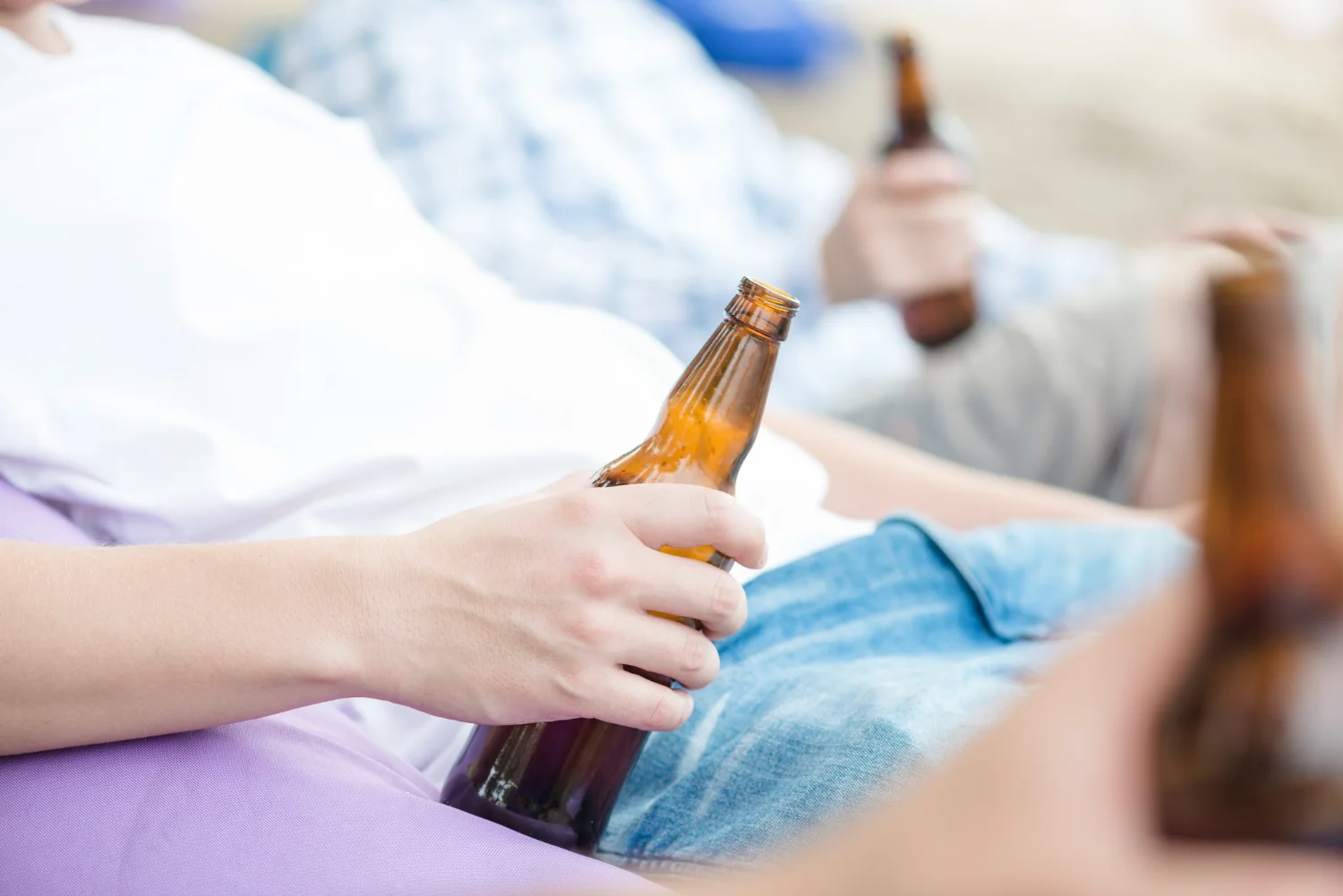Alcohol Representations in Media: A Critical Analysis
Nowadays, alcohol is everywhere you look! You have seen it in movies, heard about it in songs, and encountered it while scrolling through social media. Over the decades, popular culture has played a key role in glorifying the way our society perceives alcohol. Most TV programs depict drinking as a normal way to have fun with your peers, while songs, across all music genres, have found a wrongful way to romanticize the relationship that people have with alcohol. There is widespread concern about how media have negatively impacted drinking patterns and unnecessarily glamorized alcohol consumption. This article aims to explore how alcohol is portrayed in the media while also inviting reflection.

The Portrayal of Alcohol in Movies
It is not surprising to know that alcohol advertisements in movies have been steadily increasing over the years. Alcohol is often presented in film as a symbol of sophistication and social status. Young audiences are highly impressionable and especially susceptible to this kind of content, which reinforces the erroneous belief that alcohol is an integral part of everyday life.
Young people usually look up to movie stars as role models and alcohol marketing uses this to link the positive traits of their idol to a specific brand of alcohol. Young viewers may start to imitate the drinking behaviors of their role models with the hope of obtaining their confidence, charm, and social status. In the 20s and 50s, cigarettes were also heavily marketed in movie films, which contributed to unhealthy smoking habits that lasted decades. However, cigarette advertising in the film industry became heavily regulated over the years, which made it less common and ‘cool’ to see people smoking in recent productions.
As movies continue to glamorize and normalize alcohol consumption, they can indirectly influence viewer´s drinking patterns. The negative consequences of excessive drinking are often underestimated by the audience, as they are misguided by inaccurate social expectations.
Alcohol Advertising on TV
Alcohol advertisements are commonly seen on television. Interestingly, viewers are not just exposed to alcohol during commercials but also during prime-time television series. Due to different regulations that aim to reduce exposure to alcohol on television, brands are not allowed to show actors consuming alcohol during a commercial. However, TV commercials often portray people having a great time while alcohol is around. This, in turn, reinforces the erroneous belief that alcohol is necessary for having fun in a social event or when hanging out with friends.
Alcohol brands also bypass television network regulations by advertising their product using popular TV shows like Euphoria and 13 Reasons Why. In this series, characters are often shown consuming large quantities of alcohol and portray dangerous drinking patterns as a normal part of life.
Alcohol brands usually target young adults and strategically place their advertisements during shows that are appealing to this age group. Because TV is widely available, most alcohol advertisements are also consumed by teenagers, which can encourage underage drinking. Research has shown that people who are exposed to either movies or commercials with alcohol-related content tend to consume, on average, 1.5 more glasses of alcohol within 1 hour.
Alcohol Advertising on Social Media
Social media is extremely popular nowadays, especially among teenagers and young adults. Alcohol brands have used this as leverage to target these populations. Platforms like Facebook, Instagram, X, and Snapchat distribute advertisements that link alcohol with good feelings, friendship, and even success. This can influence young people's minds, and trick them into believing that risky drinking behaviors are needed to experience pleasurable moments.
Some experts believe that Instagram and Snapchat may be more associated with alcohol-related content that encourages excessive drinking. This is because people are more likely to post alcohol-related content to convey a higher social or economic status on their Instagram profile. Similarly, Snapchat's feature of disappearing messages makes it perfect for disseminating alcohol-related content among peers.
On the other hand, Facebook content appears to be more benign and portrays more socially accepted types of drinking, like a graduation toast.
Finally, people should be mindful of the type of alcohol-related content they share on their social media, as it can have harmful effects on vulnerable groups or people dealing with addiction problems.
Alcohol Advertising on Music songs
Music is a popular form of entertainment that has left its mark in popular culture. Whether through subtle messages or explicit references to specific brands, alcohol advertisement in music songs and videos has been a common practice. Many songs and music videos often glorify and normalize alcohol consumption. Research shows that lyrics containing references to alcohol were more common in rap music (47%) than in any other music genre. Interestingly, watching music videos has been associated with an increased risk of drinking initiation within the next 18 months.
Celebrity Endorsements in Alcohol Advertising
Another popular way alcohol brands advertise their products is through celebrity endorsements. This strategy aims to increase brand visibility, credibility, and appeal by linking it to the reputation of celebrities who are often viewed as role models. The use of celebrities in alcohol advertising influences consumer behavior by:
-
Increased purchase intentions: Consumers are more likely to choose products recommended by people whom they admire.
-
Social Influence: fans are inclined to increase alcohol consumption to emulate their favorite celebrities.
-
Brand loyalty: Fans may develop emotional connections with alcohol brands endorsed by their favorite actor, singer, or influencer.
Celebrity endorsements in alcohol advertising raise a lot of ethical and moral concerns. Many experts believe that this marketing strategy can help glamorize and normalize alcohol consumption. This would be especially worrisome in vulnerable populations such as underage drinkers and alcoholics.
Impact of Alcohol Advertising on Youth
The impact of alcohol advertising on young people is a huge concern nowadays. Traditional platforms like TV have certain regulations that somehow protect this population in a certain way. However, novel platforms like social media have virtually no regulations, and youngsters can easily consume alcohol advertisements.
Young people are especially vulnerable to alcohol advertising. Teenagers are particularly trying to define their personality, values, and beliefs. Moreover, the Social Learning Theory states that adolescents learn through direct experience and observation. Therefore, they are susceptible to creating a wrongful perception of alcohol consumption, and underage drinking is more likely to occur.
Some search websites like Google, Bing, and YouTube have certain restrictions to block alcohol advertising. However, more regulations are needed to limit and filter alcohol marketing targeting adolescents, especially in social media; as their cognitive skills may not be suited to discern the negative effects of alcohol and understand that an advertisement may not reflect reality.
Negative Effects of Alcohol Advertising
As we have explained, alcohol advertising in the media is extremely common and has the potential to affect several groups of people. Some of the negative effects of alcohol advertising are:
-
Promotion of underage drinking
-
Wrong perception of drinking norms
-
Alcohol-related harm
-
Vulnerability of susceptible populations
-
Perpetuation of stigma related to alcoholism
The negative consequences of alcohol advertising in the media are significant and have the potential to do a lot of harm. Therefore, efforts should be made to establish strict regulations, promote media literacy, and implement helpful interventions to palliate the detrimental effects of alcohol advertising on public health.
Guidelines and Restrictions for Alcohol Advertising
Regulations and policies regarding alcohol advertising may vary by country and jurisdiction. However, most restrictions share similar characteristics and serve as a filter to protect vulnerable populations from exposure to this kind of advertising. Some standard regulations and guidelines are:
-
Age restrictions: This prevents alcohol advertising from targeting minors, by avoiding images, languages, or themes that may appeal to them.
-
Content restrictions: Some regulations prohibit content that promotes excessive drinking, alcohol consumption while driving, or glamorizes alcohol.
-
Timing restrictions: Certain policies restrict alcohol advertisements to be aired during certain hours when children may be watching.
-
Sponsorship restrictions: Some countries prevent alcohol sponsorship during events that could appeal to minors, such as music festivals or sports events.
-
Health Warnings: Certain jurisdictions force alcohol brands to include messages at the end of commercials with phrases like “excessive alcohol consumption is harmful to health.”
-
Promotion of responsible drinking: Alcohol commercials are often required to include messages promoting responsible drinking.
Although these regulations can help minimize the damage that alcohol advertisements generate, it is important to understand that they are not perfect, and additional work must be done.
Limiting Exposure to Alcohol-Related Media Content
Limiting exposure to alcohol advertisements and content in the media can be beneficial for people who want to quit or reduce alcohol consumption. Furthermore, it can help protect populations at risk, such as adolescents. Some practical strategies to limit exposure to alcohol-related media content are:
-
Use of parental controls
-
Monitor screen time
-
Choose alcohol-free media
-
Avoid social media accounts that promote alcohol
-
Stop following celebrities who endorsed alcohol consumption
-
Seek professional help from your healthcare provider
-
Use of safe search engines like Google, Bing, and YouTube, which have restrictions on alcohol advertising
Conclusion
Alcohol advertising in the media is a sensitive issue that needs to be addressed responsibly. The potential negative effects of normalization and glorification of alcohol consumption portrayed in different media platforms can harm susceptible individuals like adolescents and alcoholics. It is our responsibility as concerned members of society to advocate for more regulatory policies that limit the influence of alcohol advertisements on public health.







